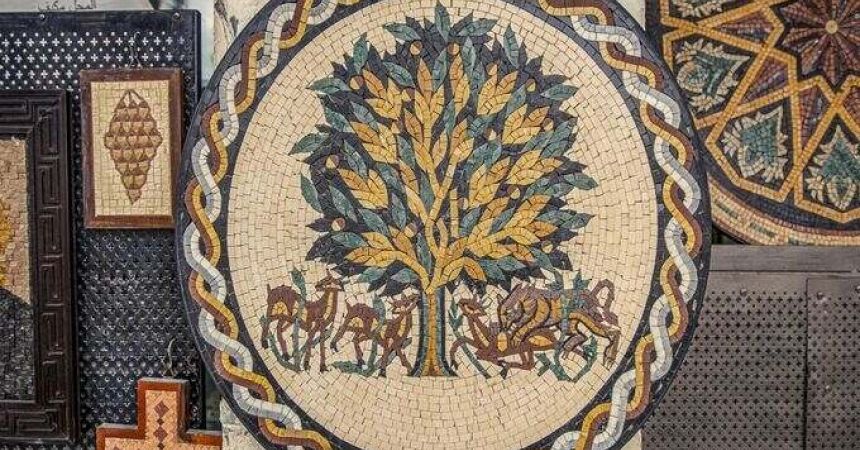
Currency in Jordan: Complete Traveler’s Guide
Introducing Jordan: Petra, Wadi Rum, and Beyond
Jordan, a country rich in history, culture, and stunning landscapes, is a popular destination for travelers seeking adventure, heritage, and relaxation. Whether you're exploring the ancient city of Petra, floating in the Dead Sea, or venturing into the deserts of Wadi Rum, understanding the currency used in Jordan and how to manage your money can significantly enhance your travel experience. This comprehensive guide will provide you with everything you need to know about currency in Jordan, including practical tips, currency exchange, and financial management to ensure a smooth and enjoyable vacation in Jordan.
Overview of Jordanian Currency
Jordanian Dinar (JOD)
The official currency of Jordan is the Jordanian Dinar, abbreviated as JOD. It is the only legal tender in the country and is subdivided into 1000 fils. The dinar is widely accepted throughout Jordan, and you will find it used for all types of transactions, from high-end purchases to small local markets.
Banknotes and Coins
Banknotes: Jordanian dinars come in denominations of 1, 5, 10, 20, and 50 JOD. Each note features prominent figures from Jordan’s history and important landmarks. The 1 JOD note is the smallest denomination and is commonly used for small transactions, while the 50 JOD note is used for larger payments.
Coins: Coins are available in denominations of 1, 5, 10, 25, and 50 fils, and 1 JOD. Coins are used for everyday transactions and are particularly useful for small purchases, such as public transportation or small items in shops.
Currency Exchange and Access
Currency Exchange Offices: Currency exchange services are widely available in Jordan. You can exchange your money at exchange offices, banks, and at the airport. Exchange rates may vary, so it’s advisable to compare rates and choose the best option. Currency exchange offices in tourist areas and major cities like Amman, Petra, and Aqaba are often more competitive.
Banks: Banks in Jordan offer currency exchange services and are a reliable option for exchanging money. Major banks such as Arab Bank, Jordan Kuwait Bank, and Cairo Amman Bank have branches throughout the country. Banks typically offer competitive exchange rates and are a safe option for handling large sums of money.
ATMs: Automated Teller Machines (ATMs) are widely available in Jordan, especially in urban areas. ATMs accept international credit and debit cards and allow you to withdraw Jordanian dinars directly. It’s recommended to use ATMs located in secure areas, such as banks or shopping centers.
Currency Exchange at Hotels: Many hotels offer currency exchange services for their guests. However, the rates may not be as favorable as those offered by banks or exchange offices. This option is convenient but may not be the most cost-effective.
Using Credit and Debit Cards
Acceptance: Credit and debit cards are widely accepted in Jordan, particularly in hotels, restaurants, and larger stores. Visa and MasterCard are the most commonly accepted, while American Express and other cards may not be as widely accepted.
Informing Your Bank: Before traveling, inform your bank or credit card company of your trip to Jordan to avoid any issues with card transactions. This step helps prevent your card from being flagged for suspicious activity and ensures that you have access to your funds.
Fees: Be aware of foreign transaction fees that may apply when using your credit or debit card abroad. Check with your bank for details on fees and exchange rates.
Managing Your Money in Jordan
Daily Expenses: Jordan can be a relatively affordable destination depending on your travel style. Budget travelers may spend around 70-10 JOD per day on accommodation, food, and local transportation. Mid-range travelers might spend 100-200 JOD per day, while luxury travelers can expect to spend 100 JOD or more daily.
Accommodation: The cost of accommodation varies significantly depending on the type of lodging and location. Budget hostels and guesthouses cost around 50-80 JOD per night, while mid-range hotels may range from 100-200 JOD per night. Luxury hotels and resorts can cost upwards of 250 JOD per night.
Food: Dining costs vary based on where you choose to eat. Street food and local eateries offer meals for 5-10 JOD, while dining at mid-range restaurants may cost 20-40 JOD per person. Fine dining establishments can be more expensive, with meals ranging from 50-80 JOD or more.
Transportation: Public transportation in Jordan is relatively affordable. Bus fares generally range from 0.5-2 JOD, while taxis have a starting fare of around 0.5 JOD, with additional charges based on distance traveled. Car rentals are available, with prices starting at around 20-30 JOD per day.

Tipping
Customs: Tipping is customary in Jordan and is appreciated for good service. In restaurants, a tip of around 10% of the bill is typical. For taxi drivers, rounding up the fare or adding a small tip is appreciated. In hotels, tipping hotel staff, such as porters and housekeeping, with 1-2 JOD is a common practice.
Guides and Drivers: If you hire a private guide or driver, tipping is expected. A tip of 5-10 JOD per day is a reasonable amount for their services.
Tips for Managing Currency and Money
Safeguarding Cash: Carry only the amount of cash you need for daily expenses and store the rest in a secure location, such as a hotel safe. Be cautious when handling large amounts of cash in public areas.
Avoiding Scams: Be wary of scams and counterfeit money. Ensure that you exchange currency at reputable locations and inspect your money carefully before accepting it.
Bank Services
Emergency Services: In case of lost or stolen cards, contact your bank immediately to report the issue and request a replacement. Most banks provide emergency contact numbers for travelers.
Currency Conversion: If you need to convert leftover Jordanian dinars to your home currency before leaving Jordan, check with banks or currency exchange offices. Keep in mind that exchange rates may vary and that some locations may not accept Jordanian dinars for conversion.
Currency Conversion: Jordanian Dinar to Major Currencies
Jordanian Dinar to US Dollar (USD)
As of recent rates, 1 JOD is approximately equal to 1.41 USD. The Jordanian dinar is relatively stable in value, and you can expect consistent exchange rates when converting to and from USD.
Jordanian Dinar to Euro (EUR)
1 JOD is approximately equal to 1.30 EUR. Conversion rates between the Jordanian dinar and the euro are subject to fluctuations, so it’s advisable to check current rates before making currency exchanges.
Jordanian Dinar to British Pound (GBP)
1 JOD is approximately equal to 1.15 GBP. The dinar is generally strong against the British pound, and you can expect a favorable exchange rate when converting to GBP.
Jordanian Dinar to Canadian Dollar (CAD)
1 JOD is approximately equal to 1.88 CAD. Exchange rates between the Jordanian dinar and Canadian dollar are relatively stable, but it’s always best to check current rates for accurate conversions.
Journey to Jordan: Explore Petra and Beyond
Understanding the currency used in Jordan and how to manage your money effectively will enhance your travel experience and help you make the most of your time in this fascinating country. From exchanging currency to using credit cards and budgeting for daily expenses, being informed about financial matters ensures a smooth and enjoyable journey. By following the tips and guidelines provided in this comprehensive guide, you’ll be well-prepared to navigate Jordan’s financial landscape and focus on exploring its ancient wonders, vibrant culture, and breathtaking landscapes. Enjoy your Holday in Jordan, where every experience is enriched by the welcoming spirit of its people and the beauty of its land.



